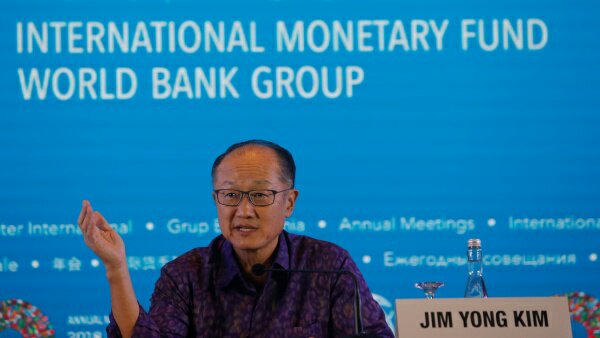In Nigeria, a statistically average child has an earning potential of only 34 percent of what it could be if the country were fully invested in human capital.

The World Bank has recently released its Human Capital Index, part of the Human Capital Project. The index seeks to measure how much economic productivity per capita is being lost because of underinvestment in human capital. For example, the index estimates that in Nigeria, a statistically average child has an earning potential of only 34 percent of what it could be if the country were fully invested in human capital, which it defines as “the knowledge, skills, and health that people accumulate over their lives.” The index therefore takes into account child survival, school enrollment, quality of learning, healthy growth, and adult survival.
It is no surprise that the bottom of the list is mostly made up of poor African states. What may be surprising to American readers is that the top-four on the list are in Asia: Singapore, Korea, Japan, and Hong Kong, respectively. The small European states of Finland, Ireland, Sweden, and the Netherlands, as well as Canada and Australia, make up the rest of the top ten. The United States ranks twenty-fourth, above Macao but below Israel, and below its Western European NATO and OECD partners. In Singapore, a statistically average child will earn 88 percent of what he or she could if the country fully invested in its human capital; in the United States, it is 76 percent; in the Russian Federation it is 73 percent.
The stated purpose of the index is to spur governments, especially poor ones, to invest in human capital. World Bank President Jim Yong Kim said, “For the poorest people, human capital is often the only capital they have.” It is a “key driver of sustainable, inclusive economic growth, but investing in health and education has not gotten the attention it deserves.”
The index is yet another measure of under development. It is also a rhetorical device intended to call attention to the measurable costs of low investment in health and education and to spur governments to do more. Governments of those countries near the bottom will not like the index, and already there are questions and criticism about its methodology and rejections of its findings. Yet, unappetizing though it is, it is intuitively obvious that the statistically average child born in Singapore will have better chances in life than his fellows born in Nigeria or the United States.
The article first appeared on Council on Foreign Relations

